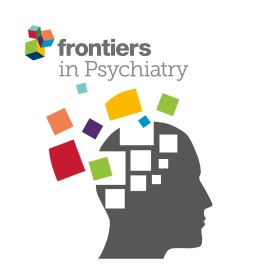 “Substance use disorder is characterized by repeated use of a substance, leading to clinically significant distress, making it a serious public health concern. The endocannabinoid system plays an important role in common neurobiological processes underlying substance use disorder, in particular by mediating the rewarding and motivational effects of substances and substance-related cues. In turn, a number of cannabinoid drugs (e.g., rimonabant, nabiximols) have been suggested for potential pharmacological treatment for substance dependence. Recently, cannabidiol (CBD), a non-psychoactive phytocannabinoid found in the cannabis plant, has also been proposed as a potentially effective treatment for the management of substance use disorder. Animal and human studies suggest that these cannabinoids have the potential to reduce craving and relapse in abstinent substance users, by impairing reconsolidation of drug-reward memory, salience of drug cues, and inhibiting the reward-facilitating effect of drugs. Such functions likely arise through the targeting of the endocannabinoid and serotonergic systems, although the exact mechanism is yet to be elucidated. This article seeks to review the role of the endocannabinoid system in substance use disorder and the proposed pharmacological action supporting cannabinoid drugs’ therapeutic potential in addictions, with a focus on CBD. Subsequently, this article will evaluate the underlying evidence for CBD as a potential treatment for substance use disorder, across a range of substances including nicotine, alcohol, psychostimulants, opioids, and cannabis. While early research supports CBD’s promise, further investigation and validation of CBD’s efficacy, across preclinical and clinical trials will be necessary.”
“Substance use disorder is characterized by repeated use of a substance, leading to clinically significant distress, making it a serious public health concern. The endocannabinoid system plays an important role in common neurobiological processes underlying substance use disorder, in particular by mediating the rewarding and motivational effects of substances and substance-related cues. In turn, a number of cannabinoid drugs (e.g., rimonabant, nabiximols) have been suggested for potential pharmacological treatment for substance dependence. Recently, cannabidiol (CBD), a non-psychoactive phytocannabinoid found in the cannabis plant, has also been proposed as a potentially effective treatment for the management of substance use disorder. Animal and human studies suggest that these cannabinoids have the potential to reduce craving and relapse in abstinent substance users, by impairing reconsolidation of drug-reward memory, salience of drug cues, and inhibiting the reward-facilitating effect of drugs. Such functions likely arise through the targeting of the endocannabinoid and serotonergic systems, although the exact mechanism is yet to be elucidated. This article seeks to review the role of the endocannabinoid system in substance use disorder and the proposed pharmacological action supporting cannabinoid drugs’ therapeutic potential in addictions, with a focus on CBD. Subsequently, this article will evaluate the underlying evidence for CBD as a potential treatment for substance use disorder, across a range of substances including nicotine, alcohol, psychostimulants, opioids, and cannabis. While early research supports CBD’s promise, further investigation and validation of CBD’s efficacy, across preclinical and clinical trials will be necessary.”
https://www.ncbi.nlm.nih.gov/pubmed/30837904
https://www.frontiersin.org/articles/10.3389/fpsyt.2019.00063/full
